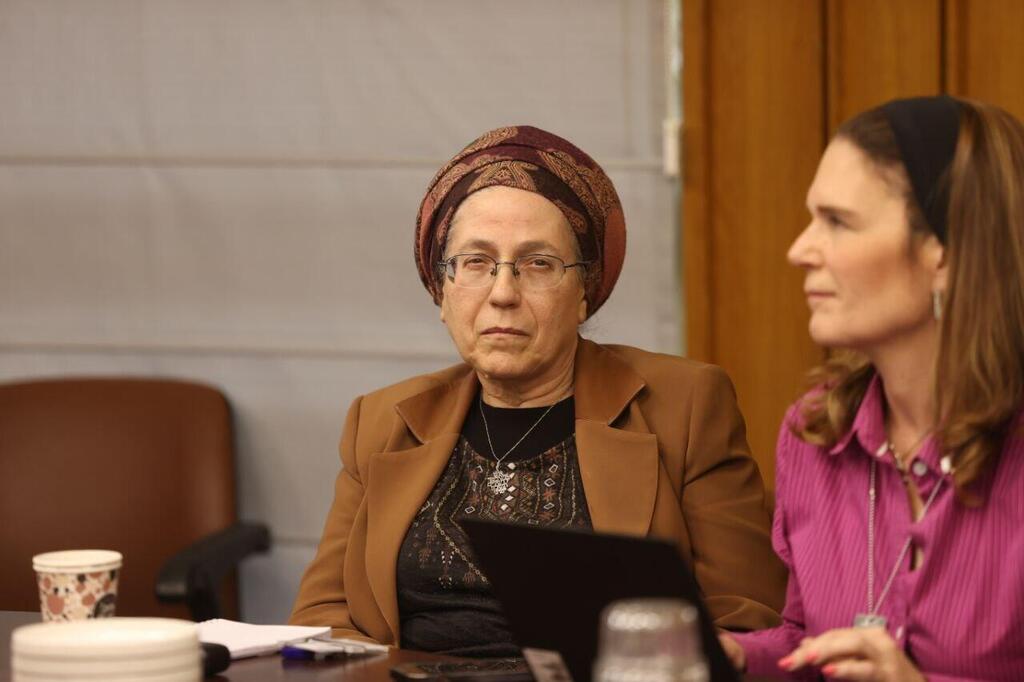Getting your Trinity Audio player ready...
The Israel Bar Association will exclude women and elect two male representatives to the committee for appointing qadis (judges) serving in the Muslim Sharia Court. This marks a departure from the association's nearly decade-long practice of appointing a woman as its representative on the committee. The only woman on the committee, representing Muslim women, will be Minister for Settlement and National Missions Orit Strock from the Religious Zionism Party.
With the support of Bar Association Chairman Amit Becher, the National Council will vote on Tuesday to elect two male candidates while rejecting the candidacies of two Muslim women. Female lawyers appealed to Becher to appoint a woman as the association's representative, but their request was denied. Attorney Lara Saadi told Ynet and Yedioth Ahronoth: "The Sharia Court handles tens of thousands of cases annually, primarily concerning divorce, alimony and custody. Muslim women are always a party to these cases, often the weaker side. Who will represent them on the committee?"
The Sharia Court, similar to the Rabbinical Court for Jews, handles personal status matters for Muslims in Israel. Qadis are appointed by the Committee for the Appointment of Qadis, which includes representatives from the Knesset, the government, the judiciary and the Bar Association.
The National Council will consider four Muslim candidates—two men and two women. However, due to internal politics, the council, with Becher's backing, decided to reject the candidacies of the two women, attorneys Abrar Salman and Rowan Aziza, and to elect only men. This decision breaks a decade-long precedent in the Bar Association, which has historically appointed women to the committee.
Between 2014 and 2017, the association appointed attorney Fadia Atamleh, who also served in the subsequent term. In 2021, attorney Yasmin Barhoum was appointed. The government, however, has ensured female representation by appointing Minister Orit Strock as its representative on the committee, making her the only woman among the nine members.
Last week, female lawyers from the Jerusalem district protested the decision to exclude women. Orna Navon, chair of the district's Gender Equality Committee, along with Shira Fedida and Lara Saadi, chair of the Women's Advancement Committee, wrote: "The Bar Association Law states that one of its goals is to promote human rights and the fundamental values of the State of Israel, including equality and the rights of women to dignity and proper representation. These rights are constitutionally protected."
The lawyers expressed outrage that, for the first time in a decade, the association would not appoint a woman to the committee. They wrote: "The Bar Association chairman has repeatedly declared his commitment to equality among sectors and to strengthening the professional community of female lawyers by ensuring proper representation in various roles."
Two months ago, Becher published a post advocating for the independence of the Supreme Court, which he argued was essential for ensuring proper representation of women among government ministry directors, citing a ruling in the Women's Lobby case. Despite the lawyers' demands, Becher refused to change his position.
Saadi emphasized the importance of gender equality and representation. "The gender equality and representation of women in the Bar Association and its institutions are crucial values that must be preserved. Representation on the committee for appointing qadis is especially important given the committee's authority,"she said. "The Sharia Court handles tens of thousands of personal status cases annually—primarily divorce, alimony, custody and housing. Muslim women are always a party to these cases. Additionally, many female lawyers specialize in personal status law and represent Muslim women in Sharia Courts, often having experienced the challenges of divorce themselves."
She added that "female lawyers understand the struggles of Muslim women and the legal process better than others and can best reflect their needs during the committee's discussions on appointing qadis. It is essential that at least one woman lawyer represents the Bar Association and Muslim women in the decision-making process."
Get the Ynetnews app on your smartphone: Google Play: https://bit.ly/4eJ37pE | Apple App Store: https://bit.ly/3ZL7iNv
In its response, the Bar Association said that: "The claim that the chairman is promoting specific candidates is false. The candidates were presented by elected representatives of the Arab sector. The chairman of the Jerusalem district attempted to promote a male candidate of his own. After failing, he cynically and improperly used the agenda of women's advancement to present candidates unfamiliar to the association, supported by those driving the judicial overhaul, for the purpose of political attacks.
"The chairman, who appointed a female director-general for the association, promoted women in all areas of management and was the first to present a fully gender-equal national list, will not accept false moral lectures from those supporting the destruction of Israel's liberal democracy."




